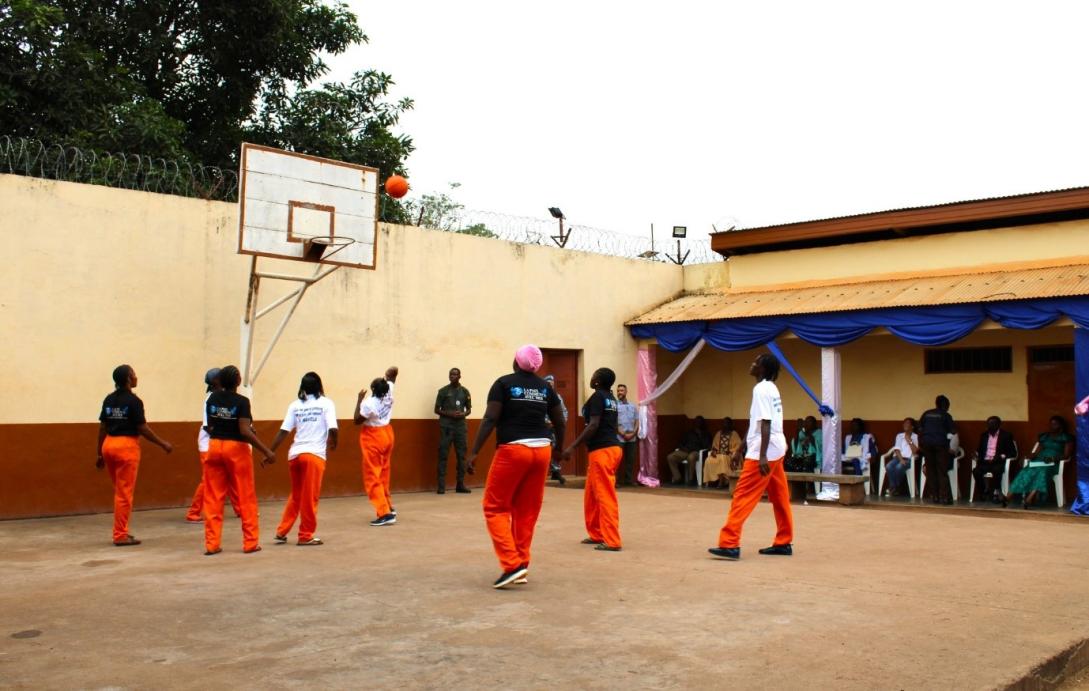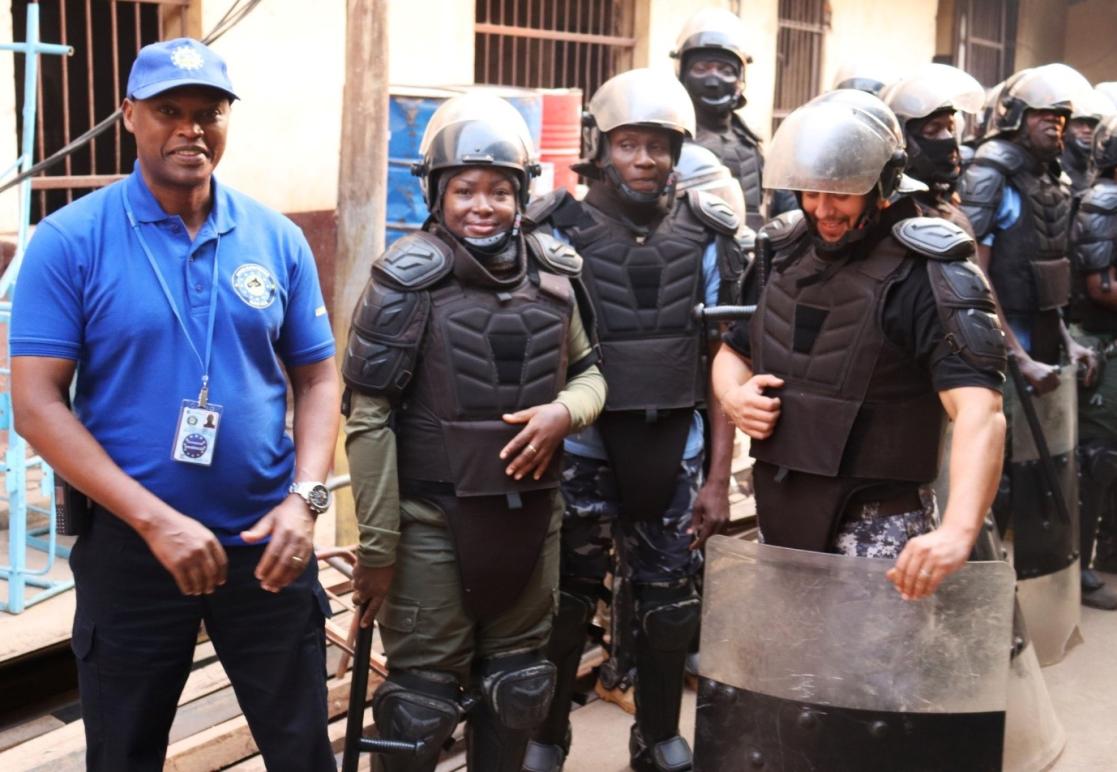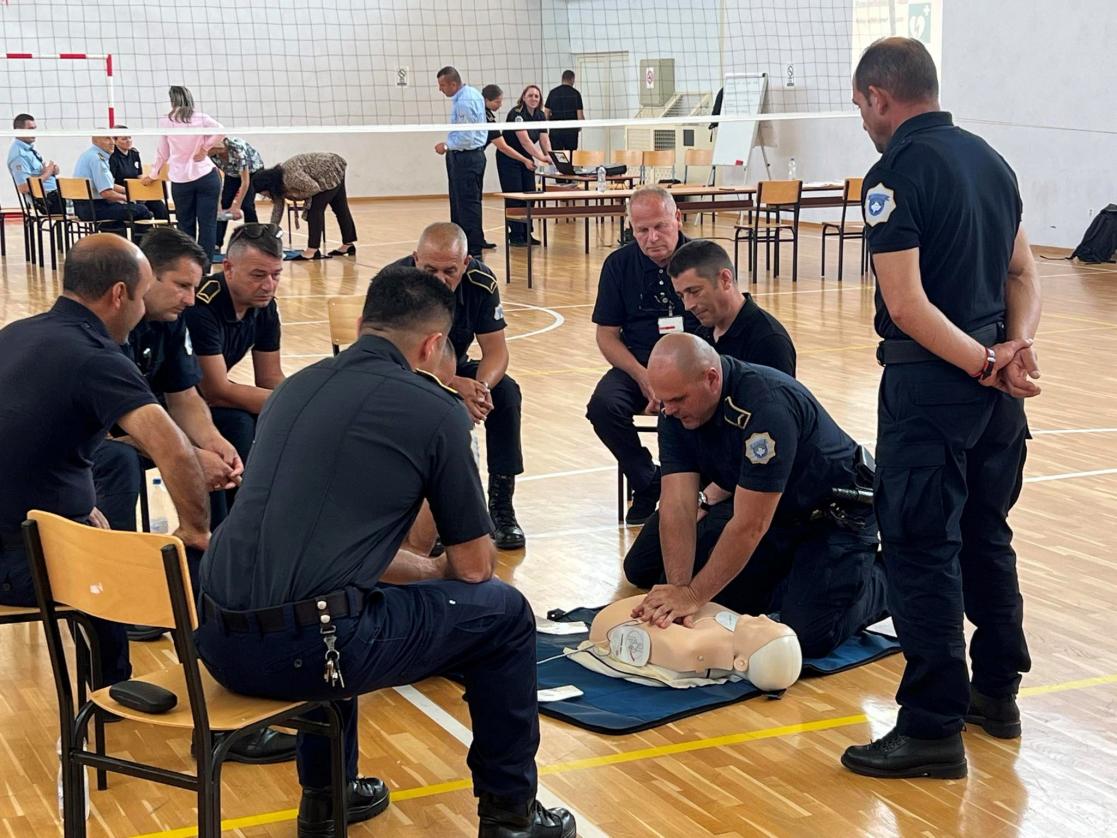EU civilian crisis management missions working for humane prison conditions on Nelson Mandela Day, 18 July

Pictured: EUAM Central African Republic. A basketball game at Bimbo women’s prison, in support of prisoners’ right to physical activity.
The ” Nelson Mandela Rules” or to give it its more formal name The Standard Minimum Rules for the Treatment of Prisoners were adopted by the UN in 2015. They seek to promote humane conditions of imprisonment, emphasising the importance of Human Rights, even for those who are incarcerated, and the role of prison staff in that regard.
Nelson Mandela International Day, 18 July 2024, is a suitable occasion to promote human prisons.
Nelson Mandela, who spent 27 years in jail as a political prisoner before going on to become President of South Africa said that “No one truly knows a nation until one has been inside its jails. A nation should not be judged by how it treats its highest citizens, but its lowest ones.”

European Union
CSDP's Penitentiary Component
The EU helps its partners improve prison conditions under the Common Security and Defence Policy (CSDP) umbrella. Penitentiary institutions play a central role in ensuring public safety in the framework of the criminal justice chain, particularly in a crisis environment.
The CSDP is are active on prison reform through three of its civilian crisis management missions. They are EULEX *, EUPOL COPPS (for the Palestinian territory) and EUAM Central African Republic.
The incarcerated also represent human capital which should not be permanently alienated from society by their prison experience.
Prisoner safety
The overall purpose of CSDP penitentiary support is to assist national prison services to hold prisoners in a safe and secure manner compliant with human rights obligations to ensure human dignity.
Typical tasks include advising on prison legislation, policy and practical guidance, training, monitoring, cooperating and coordinating support with international and national actors including Civil Society Organisations.
They also aim to better prepare prisoner for reintegration into their society after release.
In many cases, penitentiary systems are characterised by weak infrastructure with poor prison conditions. Overcrowding, insufficient numbers of trained staff, no rehabilitation and reintegration measures in place and low compliance with international human rights standards are common.

European Union
Security is paramount
In order to create conditions for safe and stable society, security aspects are also paramount. They are needed to preventing escapes, criminal activities and organised crime conducted from within the prisons, radicalisation and violent extremism.
The overall objective is to achieve lower rates of reoffending. Law enforcement agencies cannot operate without a functioning penitentiary system.
The EU is proud to be helping partners around the world to improve their prisons, contributing to a more effective and fairer judicial system.
Below you will find links to both The United Nations Standard Minimum Rules for the Treatment of Prisoners also known as the “Nelson Mandela Rules” and The Council of Europe, the European Prison Rules
- Follow the link to learn more about The United Nations Standard Minimum Rules for the Treatment of Prisoners also known as the “Nelson Mandela Rules”.
- Follow the link to learn more about The Council of Europe, the European Prison Rules
- Follow the link to the UN events page to learn more about Nelson Mandela day




